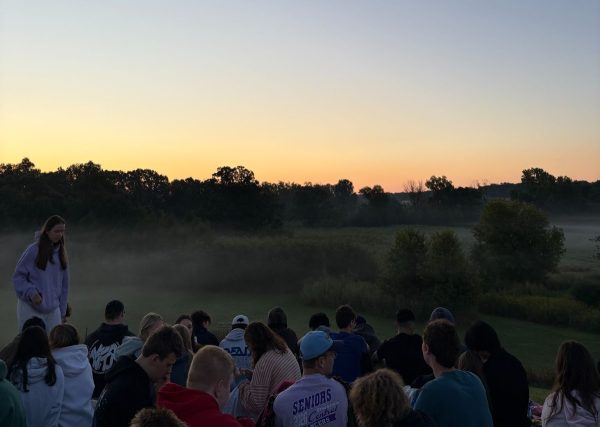Forensics speaks out
In the solo serious room, silence ensues after a speech on the conflicting perspectives of gun violence. The judge’s pencil scribbles across the evaluation sheet, breaking the tension with a simple noise. “W116,” the judge says, her voice vacant of inflection. I pull off my coat and hobble to the front, my heart beating excitedly. The judge finishes her work with the pencil, lifting it off the page to signify she has finished. “Judge ready?” I ask. “Ready,” she responds in the same monotonous tone. I take a deep breath, and my speech begins.
Forensics, an important extracurricular in the Elmbrook system, is a speech-based competition in which students of different schools are required to speak in front of a judge, and are ranked based on their performance. The sport involves several different categories of speech, and participants compete amongst students speaking in the same category. Categories include: solo serious (as noted above), oratory, poetry, play acting, informative, and group interpretive reading, just to name a few. In the oratory category, you speak alone with an emphasis on your speaking skills only. In the play acting/group-interpretive category, groups of two or more competitors perform a memorized (or on paper if group interpretive) skit without the use of props. The informative category is fairly straightforward, a memorized speech on a real topic, and poetry is the reading of a poem with the use of a small binder. There are several other categories, many of which can be considered offshoots of these major five. In moments of history, the speaker gives an informative speech on a specific time period, while in duo, competitors in groups of two perform a dramatic piece.
Students often refrain from joining Forensics because they are concerned that they will experience stage fright. This worry is completely superfluous, as every participant only competes in rooms of five to six people, many of whom you won’t see again in the competition. Criticism from judges isn’t even given verbally, but recorded on a score sheet for you to review after the event ends! If you do happen to come out on top of the others in your category, the champion’s or “power” round is still only set in a standard classroom with a few more viewers. Most of the time spent at meets isn’t in competition anyway, but in lunches, relaxing, and meeting new people. It’s a pretty low-stress way to get used to public speaking.
This point is reflected by several other members of the club. Shweta Panda (‘20) says “I think Forensics is an inherently a very useful club that helps people conquer their fear of speaking.” Another member of the club notes, “Forensics is a really fun and way less stressful than someone may think.” Rayyana Hassan (‘21), a competitor in the extemporaneous category, one where competitors have an hour to piece together information into a speech, says “Yes, it’s very chill.” And while there may be a little stress, the applications of the club’s skills life after school are undeniable. Panda (‘20) reflects this idea, stating, “ Shweta also notes the benefits of the club that carry into later life, noting, “This is extremely important in all workplaces whether one is striving to go into business or medicine.”
The quality of the speeches is another great aspect of the club. Speeches are only chosen because of a passion for them, and some competitors may spend months isolating a speech from their favorite book/movie. Several competitors can even recall pieces from previous years because of their impact. Panda (‘20) recalls, “The speaker walked up with a very neat appearance and a single comb in his head looking extremely confident. Through his speech he was doing accents, jumping, stomping, and yelling.” Speaking from personal experiences, I can recall several solo serious pieces, even from only the last meet, that left an impact.
For instance, one piece dealt with the struggle of living in American poverty and the balance of family of money. It began with the provocative line, “I’m going to tell you something, but you have to promise not to laugh. I ate cat food for a year.” Another piece dealt with the struggles of coming out as transgender in a disapproving society. The speaker clearly had a deep connection to the issue, and it was moving to hear such a personal and emotional perspective on the topic.
Forensics is ultimately a low stress way to have fun and simultaneously improve your speaking skills, even now, it isn’t too late to prepare a piece and hop into the competition, as the Forensics team is always open to fresh faces. Sophie LaRose (‘19) gives an inspiring message, “Joining this club is the most effective way to develop the public speaking skills necessary to succeed in life.”




